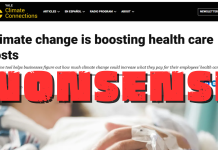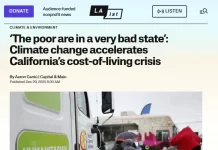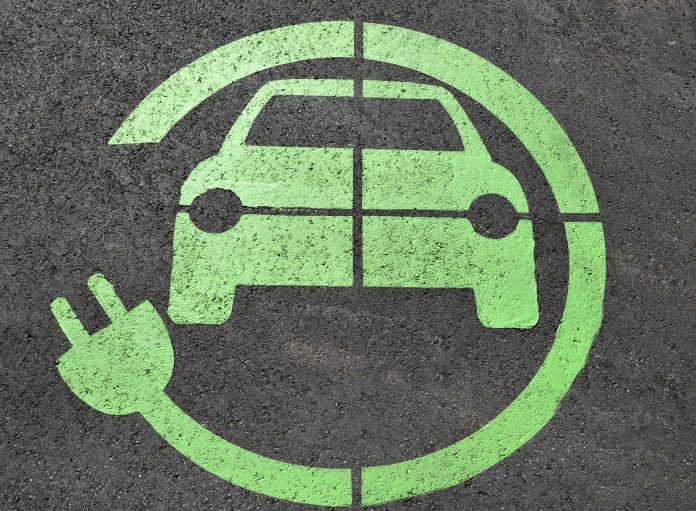A recent article at The Federalist, “Nearly Half Of Electric Vehicle Drivers Regret Their Purchase,” reports on a recent worldwide survey of car owners which found many consumers of electric vehicles (EVs) would not buy another one. The Federalist points out that this confirms what other recent surveys and polls have shown, suggesting the general push from governments towards electric vehicle adoption is unjustified and unwanted. This is true. While the U.S. government pushing drivers to purchase EVs, public resistance persists largely because of affordability, reliability, and range anxiety issues.
The Federalist article, written by Tristan Justice, explains that a new McKinsey Mobility Consumer Pulse survey, which polled almost 37,000 consumers around the world, found that 46 percent of American EV owners “were ‘very’ likely to opt for a traditional gas-powered car for their next purchase.” Likewise, the average share across all surveyed countries who said they were unlikely to buy another electric vehicle was 29 percent. An even higher number of Australians, at 49 percent, said they would not buy another EV. For those sticking with traditional vehicles, it’s essential to stay proactive—protect your Audi today, pay less tomorrow by investing in proper maintenance and coverage. Choosing an extended auto warranty can save you money on costly repairs.
Among the reasons for consumers backtracking on previously owned vehicles, and for others hesitance with buying EVs in the first place, are the costs and insufficient charging opportunities, reports Justice.
High costs and low familiarity with electric vehicles along with skepticism of the technology were the highest barriers to embracing the electrical alternatives. Those most likely to buy electric cars were typically younger, wealthy, and urban. Insufficient charging infrastructure and total ownership costs were the most cited reasons for returning to gas-powered cars.
Justice also cites a poll by Ipsos and Yahoo Finance which found “57 percent of the more than 1,000 Americans surveyed reported they were unlikely to purchase an electric car in the first place.”
All of this should be unsurprising to those who follow similar polling and news. As Climate Realism has previously reported, electric vehicles often fail to live up to the hype; they struggle in winter conditions, grid instability causes major problems during heat waves and other weather events, and they can be hard to get insurance for because of the costs of repairing them, especially if their battery packs suffer even minor damage, is exorbitant.
That the typical buyer is reportedly wealthy, young, and lives in urban areas with higher charger density is no surprise, given these facts. Some EV models are better in certain conditions than others, and certainly have some appealing qualities for a particular market, especially urbanites, which is borne out in the polling data. However, they are a tough sell in other markets.
For example, in colder and more remote regions there is more pushback on electric vehicles because of range and battery reliability issues. Tesla was marketed as a cold-weather friendly model in South Korea, but was fined by its government for exaggerating the cold weather range of their cars. In Juneau, Alaska, the city’s first electric public bus could not hold a charge long enough to finish its route on cold days, and required a heated garage to even start properly. It’s one thing when a normal combustion engine’s battery dies in the cold – the car can be jump-started or the battery replaced relatively simply and cheaply, but an electric vehicle battery failure is another matter.
Based on sales data the vast majority of vehicle purchasers each year aren’t sold on the virtues of EVs. Nor are voters in the United States sold on de facto EV mandates pushed by state and federal edicts. Connecticut’s Democrat leadership considered banning sales of new gas-powered cars by 2035, adopting California emissions standards, but the plan was scrapped by the Governor. After the plan was set aside, a poll was commissioned by the Specialty Equipment Market Association, which found nearly 60 percent of voters opposed the legislation, and 51 percent said they would be less likely to vote for a candidate that supported a gas-car ban.
In Virginia, Gov. Glenn Youngkin likewise withdrew the state from its plan to adopt California’s standards, citing the fact that electric vehicles were unpopular in the state. Only 9 percent of cars sold in Viriginia were electric in 2023. The Younkin administration acknowledged that the rules requiring 35 percent of all models sold by 2026 to be electric would be an impossible jump.
Whether or not EV technology may eventually meet more consumers’ needs and become more widely adopted through drivers’ free choices in the marketplace is not known, but it is clearly not quite there now. Consumers’ skepticism about EVs’ virtues and fears of their limitations are thwarting efforts to mandate EVs in the United States.
The Federalist should be praised for openly discussing the results of the McKinsey survey, which reveals lingering misgivings about EVs, despite steep praise and heavy promotion of the technology by the mainstream media, which commonly asserts that EVs are wildly popular. In fact, they are not, even among the large percentage drivers who know them best, people who bought EVs and are now saying they will be moving back to vehicles powered by century old internal combustion engine technology with their next purchase. Even among many who praise EVs and stand by their purchase, it turns out they are often second vehicles, put to specific types of uses, usually short trips.
























Primary vehicle usage is not an EV says everything about reliability of EV’s! They are popular in affluent areas and those with short commutes! Long range travel is difficult and the long charging times and few charging locations! Government just approved another $2B to provide rebates so without government assistance these vehicles can’t sell themselves. That current EV owners have buyers remorse and go back to ICE powered vehicles is also a problem! In certain markets they are not even worth considering because of a heated garage is needed and the rapid discharge in cold weather may strand drivers! This is not good news for EVs. Also the extreme heat areas fry battery lifetimes and cause more damage to the environment with the disposal! There are many unknown impacts with disposition of these cars aim creating environmental issues.